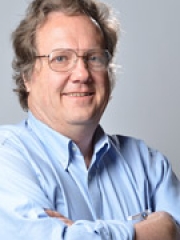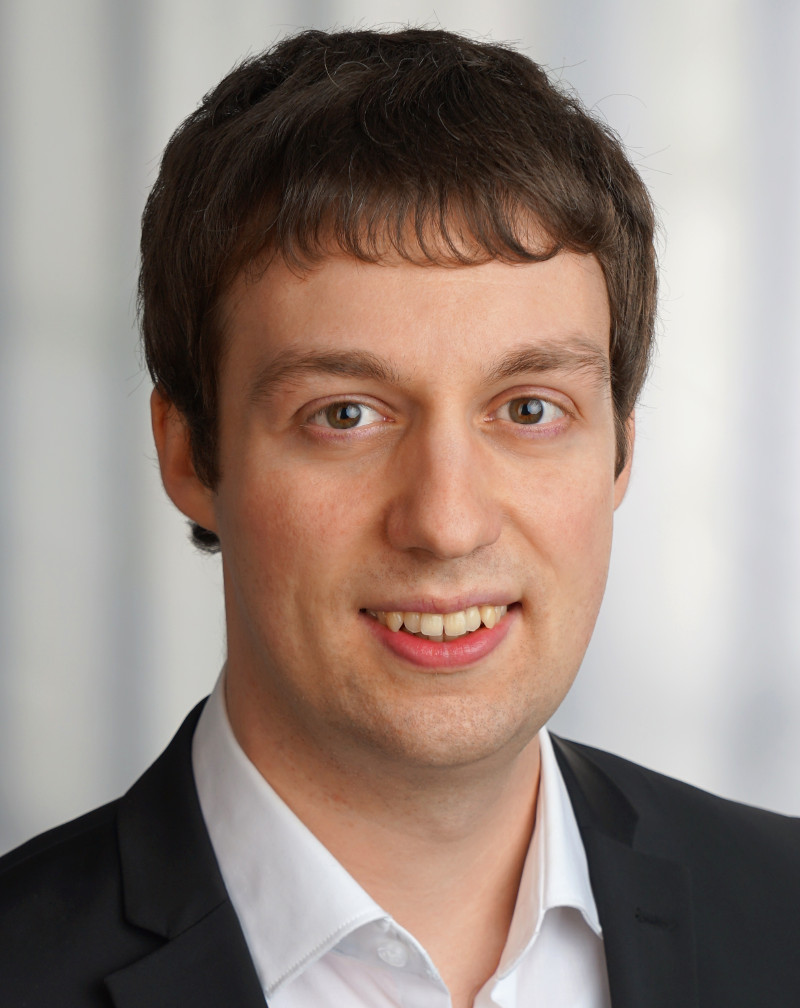 François Flückiger | CERN
François Flückiger | CERN
An Internet Veteran, François Flückiger was inducted into the Internet Hall of Fame in 2013 ("Influential engineers, activists, and entrepreneurs changed history through their vision and determination").
Director of the CERN School of Computing from 2003 to 2013, he was in charge of CERN external networking for two decades and held positions in infrastructure and application networking.
He was at the inception of Internet initiatives including CCIRN, RIPE, Ebone and ISOC. He took over Tim Berners-Lee to manage CERN's World-Wide Web team when the Web inventor left CERN for the MIT. As leader of the CERN Web team, he organized in 1994 the first ever open-source release of the CERN web software.
He is a lecturer at the University of Geneva, a member of the Internet Society Advisory Council (ISOC) and the W3C Advisory Committee, and the author of the reference textbook "Understanding Networked Multimedia" as well as more than 80 articles. He has 40 years of experience in networking and information technologies.
François Flückiger graduated from the Ecole Supérieure d'Electricité in 1973 and holds an MBA from the Enterprise Administration Institute in Paris in 1977.
 Bob Jacobsen | University of California, Berkeley, USA
Bob Jacobsen | University of California, Berkeley, USA
Bob Jacobsen is an experimental high-energy physicist, currently working on using machine learning techniques to search for dark matter with the LUX and LZ liquid xenon detectors. He is the Freedman Professor of Physics at the University of California Berkeley, where he also serves as a Dean of the College of Letters and Science.
He has previously been a member of the BaBar (PEP-2), ALEPH (LEP) and MarkII (SLC) collaborations. His original academic training was in computer engineering, and he worked in the computing industry before becoming a physicist.
 Thomas Keck | KIT
Thomas Keck | KIT
Thomas Keck obtained his PhD in physics from the Karlsruhe Institute for Technology in Germany.
Until 2018 he was a member of the Belle and Belle II collaboration, and was responsible for the development and implementation of machine learning methods. In particular, his work was focused on hadronic and semileptonic tagging algorithms, and their application to rare B meson decays.
Currently he is a research engineer at Google/Deepmind in London. His professional interests include any new technologies in the field of computer science - in particular deep learning techniques and their application in science.
 Sebastian Lopienski | CERN
Sebastian Lopienski | CERN
Sebastian Lopienski is director of the CERN School of Computing (CSC).
Sebastian also serves as CERN's deputy Computer Security Officer. He works on security strategy and policies; offers internal consultancy and audit services; develops and maintains security tools for vulnerability assessment and intrusion detection; provides training and awareness raising; and does incident investigation and response.
During his work at CERN since 2001, Sebastian has had various assignments, including designing and developing software to manage and support services hosted in the CERN Computer Centre; providing Central CVS Service for software projects at CERN; and development of applications for accelerator controls in Java. He graduated from the University of Warsaw (MSc in Computer Science) in 2002, and earned an MBA degree at the Enterprise Administration Institute in Aix-en-Provence in 2010.
His professional interests include software and network security, distributed systems, and Web and mobile technologies. In his free time, he enjoys sailing, kitesurfing, skiing and traveling.
 Eamonn Maguire | Pictet Asset Management, Geneva, Switzerland
Eamonn Maguire | Pictet Asset Management, Geneva, Switzerland
Eamonn completed his DPhil (PhD) at the University of Oxford in computer science, focused on data visualization, in particular the systematisation of glyph design.
His research interests are in the merging of machine learning and visual analytics, where he currently plies his trade as a Data Scientist at Pictet Asset Management in Geneva.
Until November 2016 he was a Senior Marie Curie COFUND Fellow at CERN where he led development of the new hepdata.net platform and contributed to numerous other visualization and data projects at CERN.
Before that, he was the lead software engineer at the Oxford University e-Research Centre, where he led development of bioinformatics tools and a visual analytics platform for corporate insider threat detection.
 Andrzej Nowak | TIK Services
Andrzej Nowak | TIK Services
Andrzej Nowak runs TIK Services, a technology and innovation consultancy based in Geneva, Switzerland. In the past two years, he co-founded and sold an award-winning Fintech start-up focused on peer-to-peer lending. Earlier, Andrzej worked at Intel and in the CERN openlab - a collaboration of CERN and industrial partners such as HP, Huawei, Intel, Oracle and Siemens. In the openlab, Andrzej was part of the CTO office, which set up next-generation technology projects for CERN. A second part of his job was to research optimization opportunities for complex code: performance tuning, parallelism and the usage of modern many-core processor architectures.
Andrzej co-founded a computing course series, including the thematic CSC, that trained over 1,500 participants both within and outside of CERN.
 Alberto Pace | CERN
Alberto Pace | CERN
Alberto Pace is a member of the IT department at CERN where he leads the Storage group ensuring a coherent development process for Physics Data management activities, strongly driven by operational and user needs.
For several years he has been an official judge at the Intel Science & Engineering Forum (ISEF), and currently represents CERN in the Advisory Board of the Internet Society (isoc.org) and the World Wide Web Consortium (w3c.org)
He has more than 20 years experiences in computing services, infrastructure, software engineering, accelerator control and accelerator operation. He graduated in Electronic Engineering from Politecnico di Milano (Italy) in 1987, where he received the first prize out of all the students of the North Italy section.
 Andreas J. Peters | CERN
Andreas J. Peters | CERN
Andreas Peters is member of the CERN data management group. Since 1997 he worked as a student for the NA48 Collaboration at CERN in the development of the data acquisition system and a zero suppression system for the electro-magnetic calorimeter. He finished his PHD in physics at the University of Mainz in 2002 studying direct CP-violation in the neutral kaon system. 2002 he joined as a research fellow the ALICE experiment doing mainly development of GRID software and data management tools.
From 2004 on he stayed at CERN working for the European grid project EGEE focused on development of end-user tools for distributed analysis and distributed data management. In 2008 he joined the CERN data management group doing research and development for future data management at CERN.
Since 2010 he is project leader and core developer of the EOS storage system providing 135 PB of disk storage to all CERN experiments and a large user community.
 Danilo Piparo | CERN
Danilo Piparo | CERN
Danilo is an experimental HEP physicist. As a member of the CMS collaboration, he graduated in 2007 but already during his studies he worked for the CERN IT department. He obtained his PhD at the Karlsruhe Institute of Technology in 2010 to then immediately join CERN as responsible of many software operations of the CMS experiment.
The high performance and parallel software expert of the CERN Software group, he joined the ROOT team in 2013. His main responsibility is the I/O subsystem but he is actively involved in the development and support of reflection and mathematical libraries.
 Ivica Puljak | University of Split - Croatia
Ivica Puljak | University of Split - Croatia
Ivica Puljak is Professor of Physics at University of Split, Faculty of electrical engineering, mechanical engineering and naval architecture (FESB). He obtained PhD from University Pierre and Maire Curie in Paris in 2000, while working at Laboratory Leprince Ringuet (LLR) at Ecole polytechnique, Palaiseau. He was head of Department of mathematics and physics, head of Chair of physics and Vice-Dean for Science and Informatics at FESB, member of Board of governors of Institute Rudjer Boskovic in Zagreb and has been awarded with several national and international prizes for science and education. In 2011/2012 he was research associate at CERN and in 2016/2017 distinguished visiting professor at Ecole polytechnique, Palaiseau, France.
He is a member of CMS collaboration since 1994 and MAGIC collaboration since 2009. His research interests are construction of the electromagnetic calorimeter of the CMS detector, physics of the Higgs boson and astroparticle physics.
 Arnulf Quadt | Universität Göttingen - Germany
Arnulf Quadt | Universität Göttingen - Germany
Arnulf Quadt is Full Professor of Physics at the University of Göttingen. He obtained his PhD from the University of Oxford, working on the ZEUS experiment at HERA. Subsequently, as postdoc he worked on projects on ZEUS at HERA, OPAL at LEP, D0 at the Tevatron and ATLAS at the LHC with the following institutes: University of Oxford, CERN, University of Bonn, Rochester University, Max-Planck-Institute of Physics and the University of Göttingen.
He founded the particle physics institute at the University of Göttingen in 2006. His main research interests are top quark physics, searches for Higgs bosons, searches for supersymmetry, grid computing and the ATLAS pixel detector.
He is the ERASMUS coordinator of the physics department, and hence deeply involved in teaching students from different countries as well as the transfer of credit points and grades.
Arnulf is the director of the II.Institute of Physics in Goettingen and teaching physics and computer science in Goettingen at undergraduate and graduate level.
 Enric Tejedor | CERN
Enric Tejedor | CERN
Enric Tejedor received his Ph.D. from the Technical University of Catalonia (UPC, Spain) in 2013. He conducted his doctorate research as a member of the Grid Computing and Clusters group of the Barcelona Supercomputing Center, where he participated in several EU research projects. As part of his Ph.D., he also carried out two internships at the IBM T.J. Watson Research Center (NY, USA). In 2015 he joined the CERN PH-SFT group as a senior fellow. He is currently working on ROOT parallelization and SWAN (a service for web-based analysis with ROOT).
Special guest lecturers
 Dalya Gartzman | Via - On Demand Transit
Dalya Gartzman | Via - On Demand Transit
A mathematician at heart, an algorithmatician in practice. After receiving my MSc. in math from TAU I ventured into data science and algorithms domains, glad to discover that the real world is at least as exciting as the abstract. Currently algorithms researcher at Via - On Demand Transit, applying both my theoretical and practical passions. Founder of Algorithms Israel and co-organizer of PyData Tel Aviv MeetUps
 Karin Gattegno | Start Up Nation
Karin Gattegno | Start Up Nation
Karin Gattegno is the VP of Strategic Partnerships at Start-Up Nation Central, building links between Israel – the Start-up Nation, and companies, countries, governments, and entrepreneurs worldwide, connecting them to the Israeli innovation and tech ecosystem.
Karin has over 10 years of experience working with High-Tech companies. Prior to joining Start-Up Nation Central, she headed up the Hi-Tech business development in PwC Israel, working with hundreds of start-ups and advising them on various issues including fundraising and M&A's. Before this, Karin worked at Tamir Fishman, a local investment house, as an investment banker in the Corporate Finance department and then as the head of operations and investor relations of DFJ-Tamir Fishman, the local affiliation of Draper Fisher Jurvetson.
 Dov Moran | Grove VC
Dov Moran | Grove VC
Dov Moran is an Israeli entrepreneur, inventor and investor, best known as the inventor of the USB memory stick, and one of the most prominent Israeli hi-tech leaders in the world.
[From Wikipedia].
Picture by ComigoTV, CC BY-SA 4.0.
 David Primor
David Primor
dr David Primor is ex CERN PhD student (ATLAS); currently cyber advisor and entrepreneur with extensive cyber governmental background.
